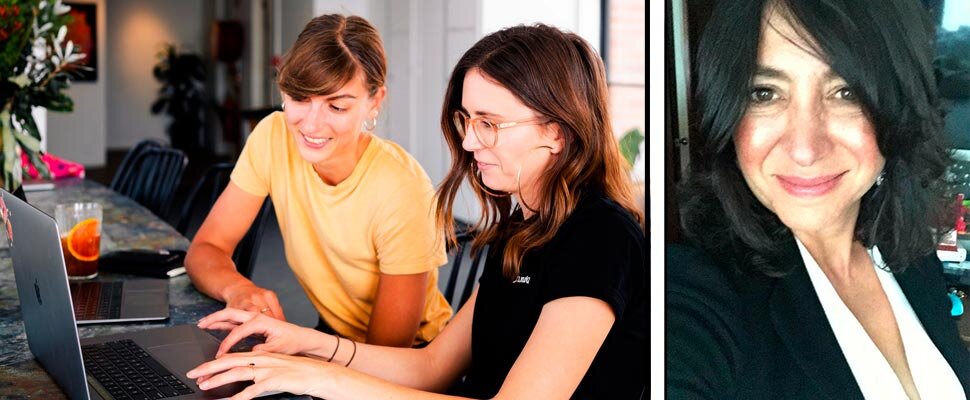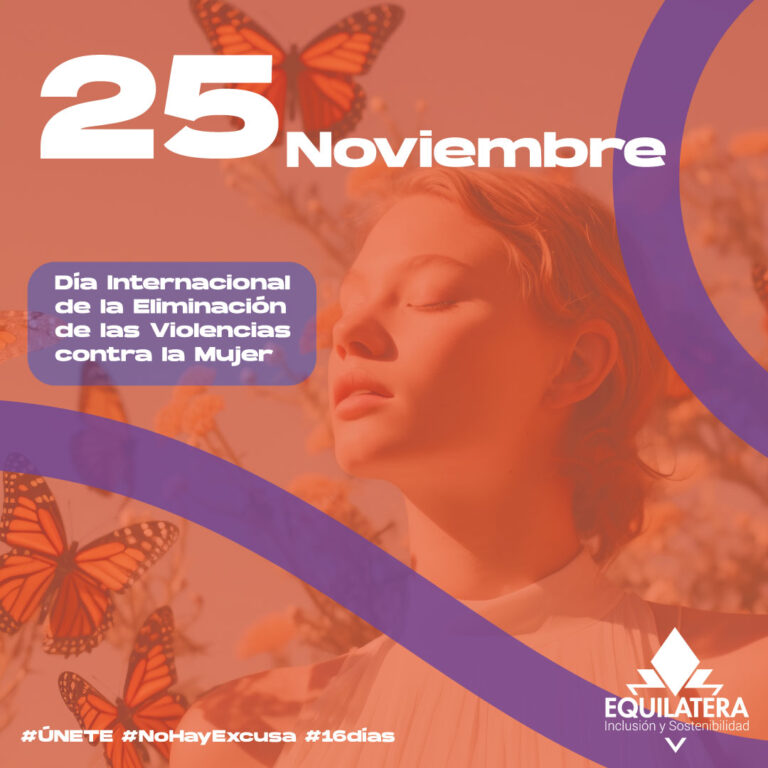The conviction that the world can be better is the engine that drives Mónica Cortés’ life forward. Her gender issues move her to her action, although she has scarcely been in situations in which her condition as a woman implies vulnerability or leaves her in question: “I’m lucky but I can’t see my navel.”
However, she remembers that after completing her career as a historian, she asked a professor for her recommendation to specialize at the Colegio de México. The answer she received from him was negative, he would not do anything for a spoiled student, and he would not waste a recommendation on her! Mónica Cortés, as if nothing, continued on her way to the Universidad de Los Andes in Bogotá where she, through a scholarship, did the master’s degree that she wanted.
Did gender equality issues find her or did she find them in her way? She studies these topics every day simply because she believes in equity as a contribution to the better living of societies. Her vision of men and women is punctual, clear, and direct: “The former deserve a less toxic life than the one assigned to them by gender roles and the latter deserve dignified and respectful treatment.”
Gender Mandates
Mónica makes a historical journey in which women have been questioned in their ability to reason and in their role as managers of life: “In this context we can be sisters, wives, daughters, mothers but not women and we are destined for a man to dominate and take care of us. Even today, in the XXI century, thousands of women and men share the idea that the greatest female fulfillment is motherhood. The world is difficult for us because we have been subjugated to lose subjectivity. We are caregivers of others but not of ourselves.”
This scenario is reflected in the company where the gaps remain. “Men and women were educated in specific gender mandates that became roles and that affects the ways in which we act, speak, dress. When we leave these mandates we will have a freer and more egalitarian society.”
Equilátera
Equilátera was born from Mónica’s strong conviction about promoting gender equality in work settings: “Companies know they should do it but they don’t know how.”
The north consists of providing advice so that companies orient their work towards the formal and informal rules that distinguish them: “We help them to change their processes, procedures and mentalities to understand that the concept of gender supports business management, returns innovative” How do Cortés and her team work? “ We do workshops, we believe in data science, we design surveys and we generate diagnoses.”
Let’s Look Beyond the Obvious
Businesses, from Monica’s perspective, can change her DNA by focusing on equality, wearing what she calls ‘gender glasses’.The result of the management is a diagnosis that indicates how things are. “This is how changes in practices and customs are achieved in written and unwritten processes.” However, changes only occur if companies show a willingness to see things with different eyes based on the women and men who make up their group of collaborators. For that, you need special glasses, those that allow you to see beyond the obvious.
Equilátera has advised renowned companies in Colombia and its creator has been a pioneer in the country in terms of promoting gender equality in productive spaces: “We have achieved credibility in a few years of action because we are a team formed academically in the topic”.
The fortunate thing is that mentalities have changed, the companies advised by Equilátera discover along the way that some of their dynamics were not fair and they have understood the feasibility and benefit of changing things for the benefit of all, women and men.
Equilátera’s work has led it to permeate large international entities such as the International Labor Organization (ILO), contributing to the design of the global model of gender equity that is shared, from this global body to any country.
One of the tools that Equilátera has put into use by several companies in Colombia is the so-called “violentometer” that measures inappropriate behaviors and behaviors – abusive or violent – at work by men and women. The results indicate the orientation of the actions based on a change that really impacts the life of the company and the mentality of the people in terms of gender.
Are Men and Women Different?
Mónica Cortés believes not: “Men are as passionate and emotional as women and we can be as pragmatic and neutral as they are.”We must discard these labels and stereotypes: Women were told that we cannot be clear and concise so as not to appear angry. What is thought is that we must be tender. We need men in companies who learn about gender, about new masculinities, who leave behind the idea that they cannot express their emotions because they would be frowned upon.”
The concept of gender is powerful because it not only talks about women but also about men, but “we have ingrained some ideas that prevent companies from promoting equality in their spaces and that equality is precisely the path to leadership that changes mentalities and makes ethical companies and transparent.”
Entrevista tomada de The Woman Post




